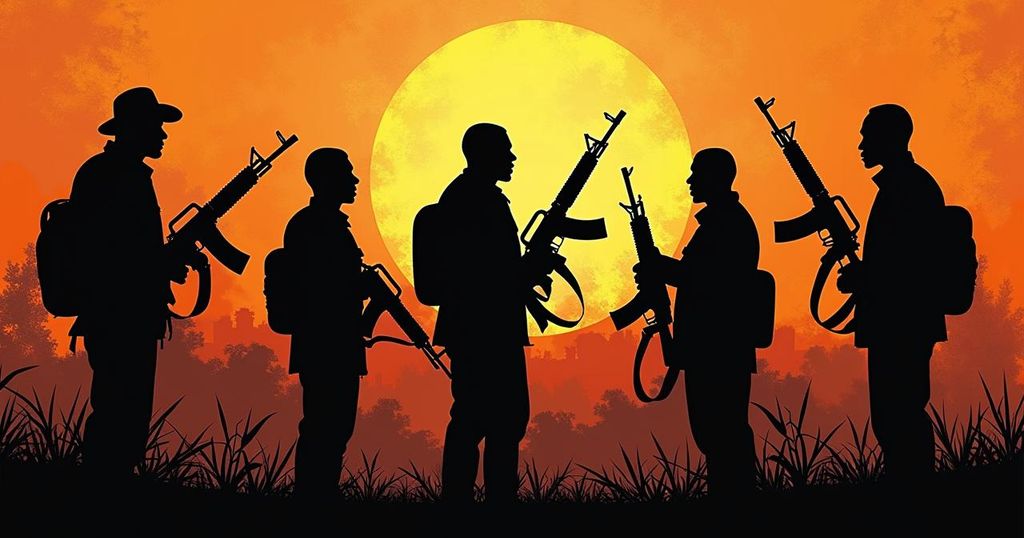Mozambique Elections: Shaping the Future Amid Challenges and Aspirations
Mozambique is set to vote in critical elections that may lead to the election of a president born after independence in 1975. With approximately 17 million eligible voters, the elections include presidential, parliamentary, and provincial positions. President Filipe Nyusi is stepping down amid corruption scandals, while candidates from various parties emphasize the need for change in the face of ongoing armed conflict, unemployment, and climate-related challenges. Vote counting begins immediately, with official results expected within 15 days.
Mozambique is poised for a significant change in leadership as the country heads to the polls on Wednesday, with the potential for the election of a president born after the nation gained independence from Portuguese colonial rule in 1975. Approximately 17 million citizens from a total population of 32 million will partake in this critical electoral process, which encompasses presidential, parliamentary, and provincial elections across the nation’s 11 provinces. President Filipe Nyusi, a member of the Mozambique Liberation Front (Frelimo), is stepping down after eight years, marking a potential transition away from the founding fathers of the country’s liberation struggle. Nyusi’s presidency has been marred by the notorious “tuna bond” corruption scandal, which resulted in the imprisonment of several senior government officials, including a former finance minister. The scandal, along with prevailing socio-economic challenges such as poverty and insecurity stemming from armed conflict in the northern regions, has generated a pressing demand for new leadership among the electorate, particularly among the youth. Four candidates are vying for the presidency: Daniel Chapo of Frelimo, whose incumbency might provide him an advantage; Ossufo Momade, leader of the opposition Mozambican National Resistance (Renamo) party; Venancio Mondlane, an independent candidate popular among young voters; and Lutero Simango, head of the Democratic Movement of Mozambique (MDM). Key issues driving the elections include the ongoing violence in Cabo Delgado province, rampant unemployment, and urgent needs arising from climate change-induced food insecurity. Candidates are prioritizing promises of job creation, restoration of peace, and enhancing climate resilience as they seek to rally support from the electorate. Vote counting will commence immediately after the polls close, with partial results expected to emerge shortly thereafter. The official results will be released by the National Election Commission within a 15-day timeframe following the election, allowing for any objections to be heard by the Constitutional Council.
The political landscape in Mozambique is undergoing critical transformation as the nation approaches its latest elections, with specific attention to generational change in leadership. This election is noteworthy as it could potentially mark the first presidency of an individual born after the country’s post-colonial independence in 1975. The backdrop of this election includes significant historical factors such as the fallout from the civil war between Frelimo and Renamo, ongoing socio-economic challenges, and a cloud of corruption that has plagued the governing Frelimo party. Over the years, as the nation grapples with high unemployment rates, poverty, and escalating violence—especially in Cabo Delgado—the electorate’s desire for change becomes increasingly pronounced. Therefore, the emergence of new political candidates promising reform resonates strongly with a younger demographic, who are actively seeking improved living conditions and security.
The upcoming elections in Mozambique represent a pivotal moment in the country’s political history, with the potential to reshape its leadership and address pressing issues such as armed conflict, corruption, job creation, and climate change-induced challenges. As voters make their choices, the outcomes will reflect not only their responses to the candidates’ promises but also their aspirations for a future devoid of insecurity and economic hardship. With significant focus on the youth vote and the shifting political affiliations, the elections promise to be a critical juncture in Mozambique’s democratic evolution.
Original Source: www.aljazeera.com




Post Comment